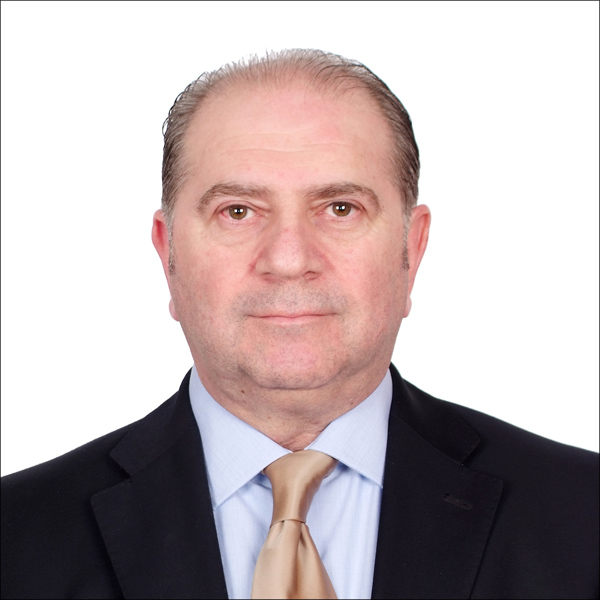
Besher Al-Attar, MD, CES (Neph), RHP, Assistant PH, Paris France
Riyadh, Kingdom of Saudi Arabia
Consultant Nephrologist
Executive Director of Clinical Services for the Saudi Center for Organ Transplantation (SCOT)
Scientific Editor for the Saudi Journal for Kidney Diseases and Transplantation
Co-founder of education training program DMC and DAC
Member of TTS / ISODP, ISN, MESOT
Dr. Besher Al-Attar graduated from Damascus University Syria. He finished his residency in internal medicine and nephrology in University Hospital Ambroise Paris-France (RHP), A French Board Certified (CES) from Rene Descartes, Paris France. He worked as assistance Professor in Nephrology and Dialysis at the University Hospital in Ambroise Pare, Boulogne, France (PH, Paris). He also worked as Consultant Nephrologist and Supervisor of Renal Services in North Health Directorate in Tabuk. He joined the SCOT in 1995 and appointed as Medical Director since 1998. He received a visiting professorship in organ procurement from the National Institute of Transplantation in Los Angeles, California. He participated in numerous scientific activities nationally and internationally including hundreds of educational presentation with over 75 scientific abstracts, 15 peer reviewed articles and 5 books related to CKD, organ donation and death declaration.
The impact of an organ donation unit in tertiary hospitals in Saudi Arabia
Ban Alzaid1, Brian Alvarez2, Rayyan Al Yahya1, Besher Al Attar1, Talal Algoufi1.
1Donor Affairs and Organ Allocation Department, Saudi Center for Organ Transplantation, Riyadh, Saudi Arabia; 2Donation and Transplantation Institute, DTI foundation, Barcelona, Spain
Introduction: Organ donation is a crucial part of modern medicine, providing hope and saving lives for those in need of a transplant. Tertiary hospitals play an indispensable role in this process, as they are often the primary locations for organ donations and transplants. The establishment of an organ donation unit within a tertiary hospital can have a profound impact on the lives of patients, families, and the broader community. The creation of an organ donation unit encompasses the recruitment of a team inside the hospital that oversees donor detection, evaluation, management, and family approach. This team is led by an ICU consultant (Part-time) supported by an ICU nurse, working full-time in organ donation. The Saudi Center for Organ Transplantation is the center that audits and manages organs between harvest and transplant centers. The country’s strategy is centered on fostering the creation of in-hospital teams dedicated to organ donation. In this research, the objective is to compare organ donation performance in King Abdulaziz Medical City National Guard in Riyadh before and after the establishment of an Organ Donation Unit to showcase the effectiveness of an organ donation unit in a tertiary hospital. The hospital’s ODU was created in August 2022, for which 6 months were awaited to ensure its implementation was completed.
Methods: Using a cohort study design, data will be collected in 6-month intervals before and after the establishment of an organ donation unit from March 2022 to August 2022, and from March 2023 to August 2023. Retrospective analysis will be used for past data and prospective analysis will be used to analyze data that is produced from the same 6 months following the establishment of the ODU.
Variables measured will include the Number of reported cases, Number of cases that have been fully documented as brain dead, Number of family approaches done, Number of consents and consent rate, and Number of utilized cases and conversion rate.
Results: Figure 1 summarizes the results obtained. In the studied period, donor detection increased by 73% from 11 referrals to 19 referrals after the creation of an ODU. This was also accompanied by a 67% increase in the amount of brain deaths documented from 9 to 15 cases. More families were approached (from 77% to 86% of brain death cases) and this led to a higher consent rate from 0% to 15.4%. Finally, thanks to the improvement in case management, 2 utilized donors were obtained.
Conclusions: The establishment of a successful organ donation unit inside a hospital demonstrated to be an effective approach to fostering deceased organ donation. Changing hospital culture to generate a positive attitude towards organ donation is easier if the hospital assumes this task as its own. Preliminary results from 2024 suggest a further improvement in hospital performance and will be published in a further study.
